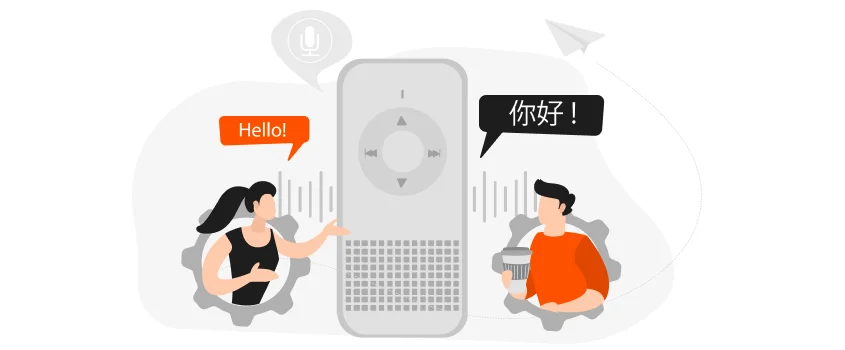How Translation Glossary Can Improve Translation Quality
By: Shahzad Bashir Posted on Tue, 21-07-2020

2025 Offer Request a Quote Today and Grab a $50 Coupon for Free!
By: Shahzad Bashir Posted on Tue, 21-07-2020

In this era of globalization and digitalization, technology has made our life much easier. People integrate their cell phones with email and password managers to secure all their information in one place. Every digital tool has its benefit. It automates your manual process and saves your time and money. Each of us uses technology to compete in this competitive world. It is no more different when we talk about translation glossary in the translation industry.
Translation glossaries have made translators’ life quite easy in terms of saving time and effort. It ensures clarity and consistency in your translation project and creates a pleasant user experience while improving your efficiency. Studies have revealed that 15 percent of the cost of translation is enhanced because of rework and the use of inappropriate terminologies. A translation glossary is no doubt a very significant tool in improving your translation quality.
If your translation glossary has thousands of words and you need to consult it whenever you are completing your translation project then it becomes very hectic for you and it takes a lot of time. Thus translation glossary is helpful only if it is systematic and easily navigable. For creating the systematic glossary, review your translation material for frequently used words. While creating your glossary make sure that a term is used only once. Your source language should have a glossary that contains key terminologies and seamless translation in your target language. This will greatly reduce the time that is used in translating strings and gives you ample time to double-check your work.
The glossary is used to ensure consistency in providing company and product-related terminologies. It creates convenience for translators in translating industry-specific terminologies. For example, if you include your company name in the glossary, the translators will know that it’s not supposed to be translated. This has not created problems for companies with distinctive names. But for many companies having names of commonly used objects or fruits like Apple, a clear distinction between the brand name and the objects is essential, and adding it in the glossary can help in maintaining consistency in a range of languages.
Moreover, you also need to draw a clear line between the industry-specific words and simple terminologies that are helpful for the translator. For example, in the food industry, many fast-food chains provide burgers and fries that are considered industry-specific words but not all fast-food chains use the word happy meal because it is associated with McDonald's. If you include burgers and fries in your translation glossary, it will be inappropriate whereas including a happy meal in your glossary will make the correct use of the product name.
The companies can easily go off the track while developing their glossaries. Glossaries are the instrument for translators so think like one, and create glossary accordingly. For the convenience of the translators, you can give those words and definitions in a specific context so that they have an understanding of how the words are supposed to be used in the translation. Furthermore, you can include definitions of words and parts of speech according to different dialects like British and American English. Creating a comprehensive tool for your translator looks like a daunting task but it has many long-term benefits. It decreases the overall cost of your translation project as soon as you get familiar with industry-specific terminologies
There is no use of translation glossary if your source language terminology is not translated into your target language. You need to send compiled glossary to translators that are native to the target language. Let them review the glossary and share feedback and notes to check if any dialect and regional nuances have affected the meaning of the intended message. Continuously take feedback from translators. As your business grows, products and services of your and marketing CTAs also change. You need to add, change, or delete new terms with time. It is necessary to include translators in this process so that you come up with state-of-the-art translation glossary.
Glossaries can help in developing a translation memory database. The translation memory database is another important tool in enhancing productivity and reducing costs. It is the database that helps in storing paragraphs, sentences, and sections of the text that already have been translated. Translation memory, commonly known as ™ identifies similar and identical matches while translating the project. You don’t have to translate the sentences, sections of the text, and paragraphs that have already been translated. Translation memories support translation quality and improve the consistency and efficiency of the translation project.
If you are running the translation company then do equip translators with Translation Glossary because even a competent translator will find difficulty in translating marketing content. By providing them with this inevitable resource, you can make their life easier and they will work with their full potential in providing impeccable translation projects. Or, you can simply hire us for translation projects. Here at Mars Translation, we are providing accurate, reliable, and fast translation services in more than 120 languages. Get in touch to know more!

In this blog, we will discuss 12 different types of translation. Types of translation help us to understand the diversity in
Read more
Mars Translation has a huge team of professional and experienced translators who understand their target language and can deliver the
Read more
San Francisco is a city in Western California. It is famous for its beautiful settings and it is built on
Read more
San Diego is California's second-largest city, and it has a population of 1.3 million from which three million residents are
Read more
Los Angeles is the largest city in California. It is also known by its initials L.A. This city is renowned
Read more
Dallas is the largest state in Texas after Houston and San Antonio. It is the ninth most populous city in
Read more
Austin is the capital city of the US state of Texas. It is the 11th most populous city in the
Read more
Mars Translation provides Thai legal translation services for almost all kinds of legal needs. We have a huge team of
Read more
MarsTranslation provides professional Spanish Website Translation services all over the world. We have hired only the best of the best
Read more

